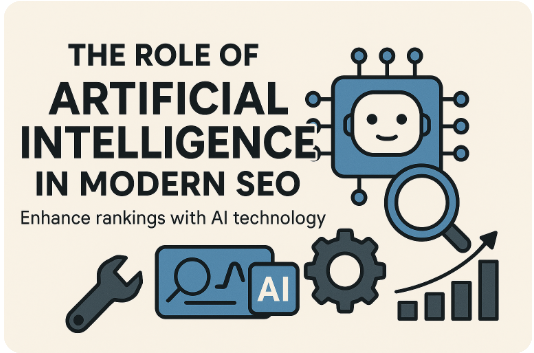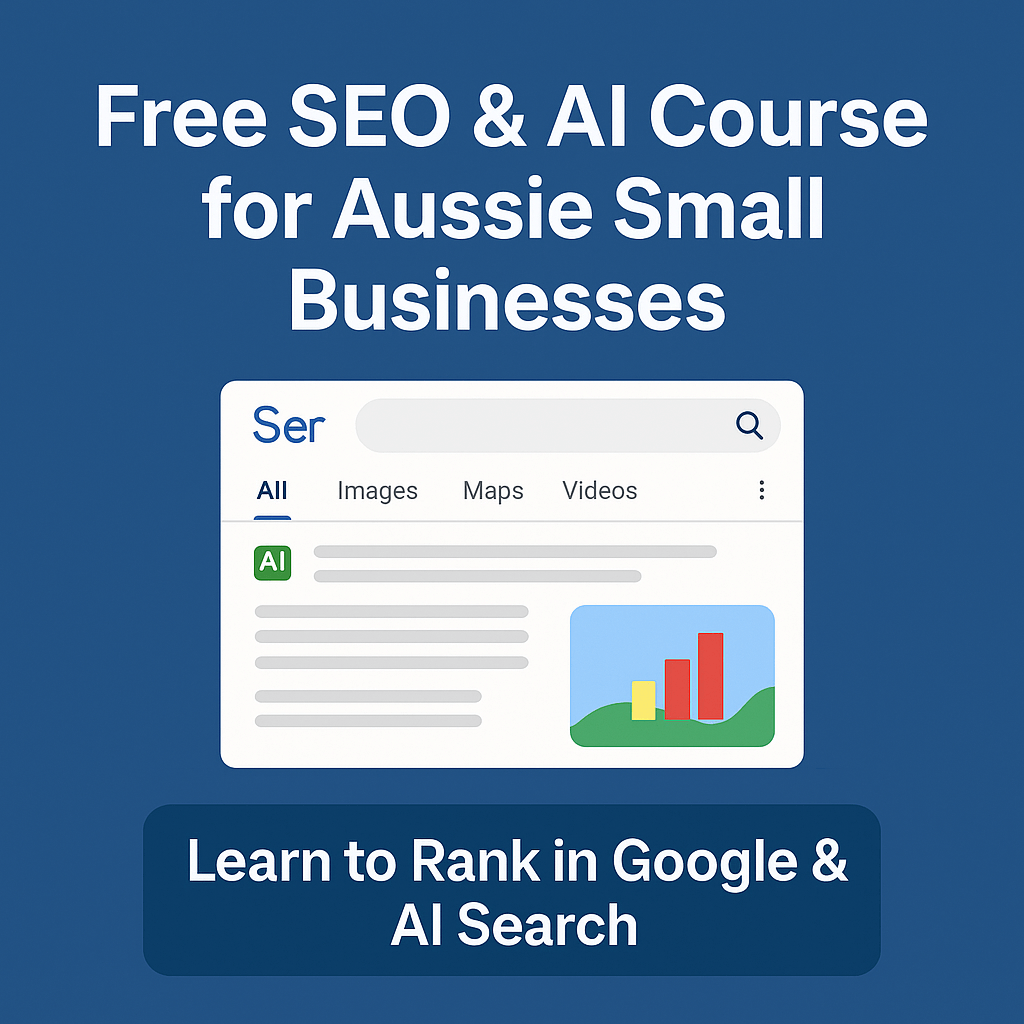Search Engine Optimization (SEO) has undergone a transformative journey since its inception. In the early days, SEO revolved around keyword stuffing, link-building, and metadata optimization. However, as search engines evolved, so did the strategies to rank high in search engine results pages (SERPs). Enter Artificial Intelligence (AI) – a game-changing force that has redefined SEO practices in unprecedented ways. Today, AI is not just an optional tool for SEO professionals; it is at the heart of effective optimization strategies.
The Shift Towards Intelligent Search Engines
Search engines like Google, Bing, and others have integrated AI to enhance their capabilities. Google’s RankBrain, introduced in 2015, was one of the first instances where AI played a significant role in search algorithms. RankBrain uses machine learning to understand search queries better, particularly those that are ambiguous or phrased in natural language. This innovation marked a shift from simple keyword matching to understanding user intent.
Fast forward to today, AI technologies such as Google’s MUM (Multitask Unified Model) aim to answer complex queries by synthesizing information from multiple sources and languages. This evolution signifies that search engines are becoming more context-aware, making traditional SEO tactics less effective unless they align with user intent and content quality.
AI-Powered Keyword Research
Keyword research has long been the backbone of SEO, but AI tools have elevated it to new levels of precision and efficiency. Platforms like Ahrefs, SEMrush, and Google’s Keyword Planner now integrate AI to analyze massive amounts of data. These tools can predict search trends, analyze competitor strategies, and suggest long-tail keywords that resonate with target audiences.
Moreover, AI can personalize keyword research by considering user behavior, location, and demographics. For instance, a user searching for “best pizza” in New York will see results tailored to their location and preferences, thanks to AI-driven algorithms. This capability underscores the importance of localized and personalized SEO strategies.
Content Creation and Optimization
One of the most profound impacts of AI in SEO lies in content creation and optimization. AI-powered tools like ChatGPT, Jasper, and Copy.ai can generate high-quality content in seconds. These tools analyze vast amounts of data to craft articles, product descriptions, and ad copy that are not only engaging but also optimized for search engines.
However, while AI can produce content at scale, it’s not without limitations. AI-generated content often lacks the nuance and creativity that human writers bring. It is also prone to inaccuracies or irrelevant information if the input data is flawed. Therefore, a hybrid approach—combining human creativity with AI efficiency—often yields the best results.
On the optimization front, AI tools can analyze content for readability, keyword density, and SEO compliance. Tools like Surfer SEO and Clearscope provide actionable insights on how to structure content to rank higher, ensuring alignment with search engine algorithms.
Enhancing User Experience
Search engines increasingly prioritize user experience (UX) as a ranking factor. AI plays a crucial role in improving UX by enabling features like personalized recommendations, voice search, and predictive text. Websites that incorporate AI-powered chatbots, intelligent search functions, and adaptive design are more likely to retain visitors and reduce bounce rates.
For example, AI can analyze user behavior on a website to identify pain points, such as slow-loading pages or confusing navigation. Tools like Hotjar and Crazy Egg leverage AI to provide heatmaps and session recordings, helping webmasters optimize their sites for better engagement. Ultimately, enhancing UX not only satisfies visitors but also aligns with search engines’ emphasis on delivering value to users.
AI and Voice Search Optimization
Voice search is rapidly gaining traction, driven by the proliferation of smart devices like Amazon Echo, Google Nest, and Siri-enabled phones. AI plays a pivotal role in enabling these voice-activated assistants to interpret and process spoken queries. Unlike traditional text-based searches, voice searches tend to be longer and more conversational, requiring a shift in SEO strategies.
To optimize for voice search, businesses must focus on natural language processing (NLP) and question-based keywords. AI tools can help identify these phrases and integrate them into content. Additionally, structured data and schema markup are essential for ensuring that content is voice-search friendly, as AI-driven search engines rely on these cues to deliver precise answers.
Predictive Analytics and SEO Strategy
AI-powered predictive analytics tools enable SEO professionals to make data-driven decisions. Platforms like BrightEdge and MarketMuse use AI to forecast search trends, identify content gaps, and suggest optimization strategies. These tools can predict which keywords or topics are likely to gain traction, allowing businesses to stay ahead of the competition.
Furthermore, predictive analytics helps in resource allocation. By identifying which efforts yield the highest ROI, businesses can focus their time and budget on high-impact strategies. This capability is particularly beneficial for small businesses with limited resources, as it ensures every action contributes to measurable results.
AI-Driven Technical SEO
Technical SEO involves optimizing a website’s infrastructure to improve its crawlability and indexability. AI has streamlined many aspects of technical SEO, from identifying broken links to optimizing site speed. Tools like DeepCrawl, Screaming Frog, and Sitebulb use AI to conduct comprehensive audits, pinpointing issues that might hinder a site’s performance in SERPs.
Additionally, AI plays a role in automating mundane but essential tasks, such as generating XML sitemaps, fixing canonicalization issues, and managing redirects. This automation frees up SEO professionals to focus on strategic initiatives rather than repetitive technical tasks.
Ethical Considerations and Challenges
Despite its benefits, the integration of AI in SEO is not without challenges. One major concern is the ethical use of AI-generated content. Search engines prioritize originality and relevance, and over-reliance on AI can lead to duplicate or low-quality content. Businesses must ensure that their AI-driven strategies align with ethical guidelines and provide genuine value to users.
Another challenge is the learning curve associated with AI tools. While these tools are becoming more user-friendly, they still require a certain level of expertise to maximize their potential. Smaller businesses or individuals without technical backgrounds may find it challenging to keep up.
Finally, as AI continues to evolve, so do search engine algorithms. This dynamic environment means that SEO professionals must remain adaptable, continuously updating their skills and strategies to stay relevant.
The Future of AI in SEO
The role of AI in SEO is poised to grow even further in the coming years. Advancements in machine learning, NLP, and computer vision will likely make search engines even more sophisticated. Features like visual search, augmented reality (AR), and hyper-personalized recommendations are on the horizon, driven by AI innovations.
For businesses, this evolution presents both opportunities and challenges. Embracing AI can lead to more efficient and effective SEO strategies, but it also requires a commitment to staying informed and agile. Collaboration between human creativity and AI capabilities will remain key to unlocking the full potential of SEO in the AI era.
Conclusion
Artificial Intelligence has undeniably reshaped the landscape of modern SEO. From enhancing keyword research and content creation to improving user experience and enabling predictive analytics, AI has become an indispensable tool for SEO professionals. However, its integration also demands ethical considerations, continuous learning, and a strategic approach.
As we look to the future, the synergy between AI and SEO will continue to evolve, offering exciting possibilities for businesses to connect with their audiences. By leveraging AI’s capabilities while maintaining a human-centric approach, businesses can navigate the complexities of modern SEO and achieve sustainable success in the digital age.
Frequently Asked Questions (FAQ):
Q: What is AI in SEO?
A: AI in SEO refers to using machine learning and automation tools to research keywords, plan content, optimise pages, and analyse performance. It supports human expertise rather than replacing it.
Q: Does Google allow AI‑generated content?
A: Yes—Google focuses on helpful, original content that follows its spam policies and demonstrates E‑E‑A‑T. Using AI is fine if you add real expertise, fact‑check, and avoid low‑quality, mass‑produced content.
Q: How can AI help with keyword research?
A: AI can surface long‑tail ideas, group topics by intent, and highlight gaps. Always validate with real search data, SERP reviews, and your audience insights.
Q: Should I use AI to write articles?
A: Use AI for outlines, briefs, drafts and FAQs, then add your unique experience, local examples, data, and a human edit. Avoid publishing raw AI text.
Q: Can AI content be detected or penalised?
A: There’s no foolproof detector. Google doesn’t penalise content just for being AI‑assisted; it penalises unhelpful, spammy, or misleading content. Prioritise quality and accuracy.
Q: can’t replace lived experience.
A: Add author bios, case studies, original insights, and cite reputable sources. Use structured data where appropriate.
Q: What AI tools are useful for SEO?
A: Popular options include AI chat tools (e.g. ChatGPT, Claude, Gemini), keyword and content tools (e.g. Semrush/Ahrefs, AlsoAsked, Surfer/Clearscope), and automation (Zapier/Make). Check data privacy settings and always review outputs.
Q: Is AI helpful for local SEO?
A: Yes—use it to draft location‑specific pages, local FAQs, and Google Business Profile posts, and to summarise reviews. Keep NAP details consistent and ensure local info is accurate.
Q: What are the risks of using AI in SEO?
A: Risks include inaccuracies, duplicate or generic content, brand voice drift, privacy concerns, and over‑automation. Mitigate with human review, citations, originality, and clear guidelines.
Q: Will AI replace SEO professionals?
A: Unlikely. AI changes the focus towards strategy, technical SEO, content quality, UX, and measurement. Human judgement and real‑world experience remain critical.
Q: How does AI change link building?
A: AI can help with prospecting, prioritising targets, and drafting outreach. Quality, relationships, and genuinely useful content still drive sustainable results—avoid automated spam.
Q: How should a small business get started with AI for SEO?
A: Start small: use AI for briefs, outlines, meta tags, and FAQs. Set quality standards, review everything, measure impact in Search Console/Analytics, and scale what works.



